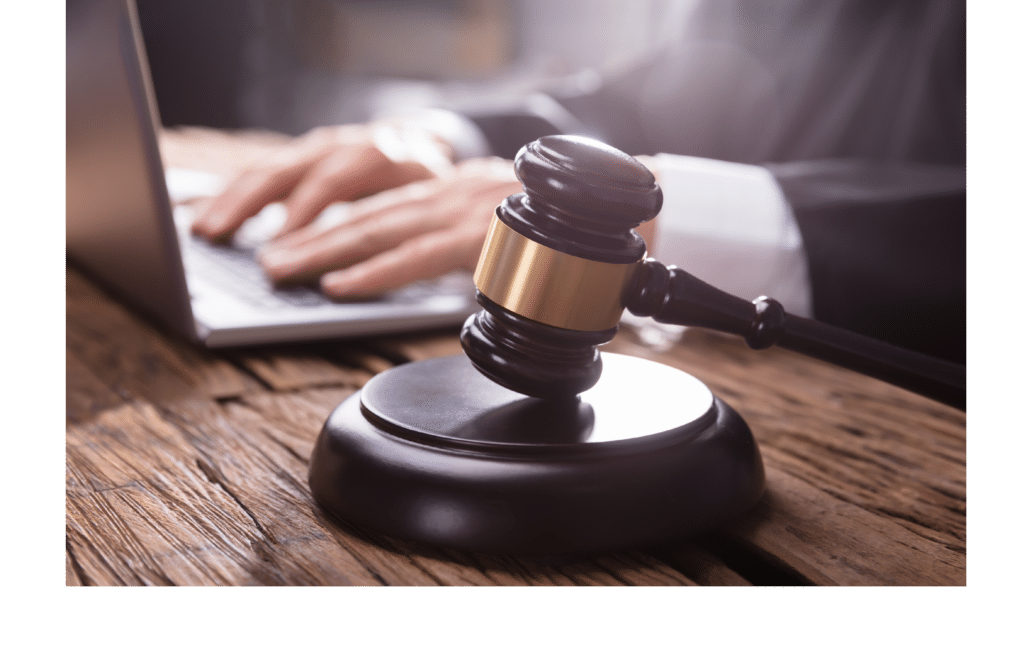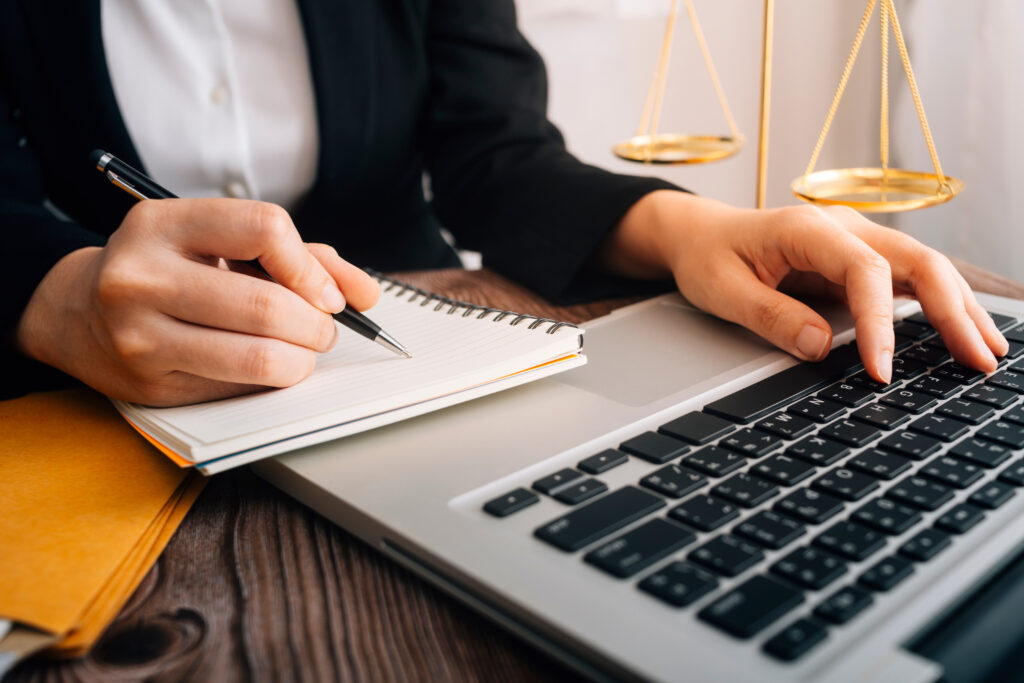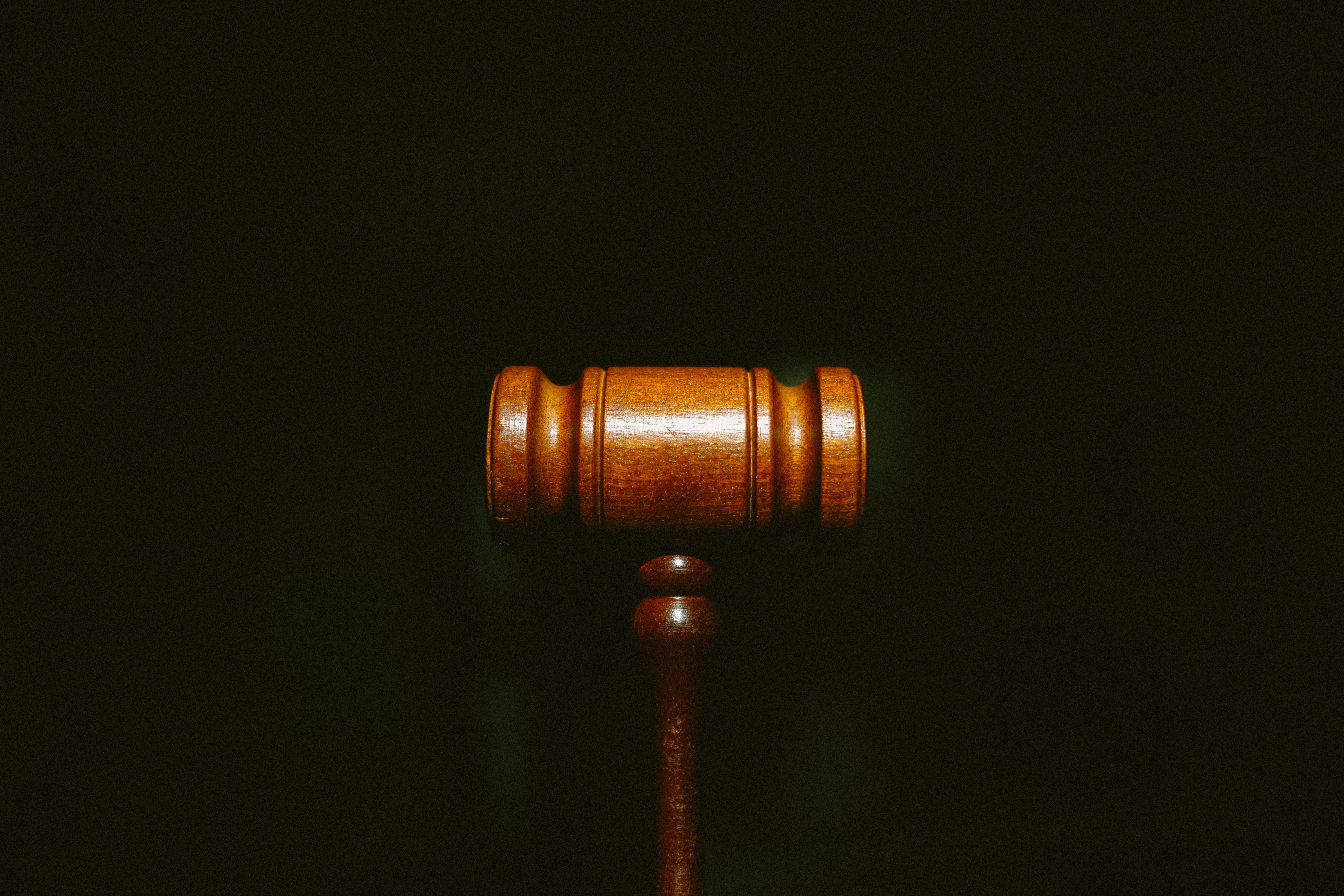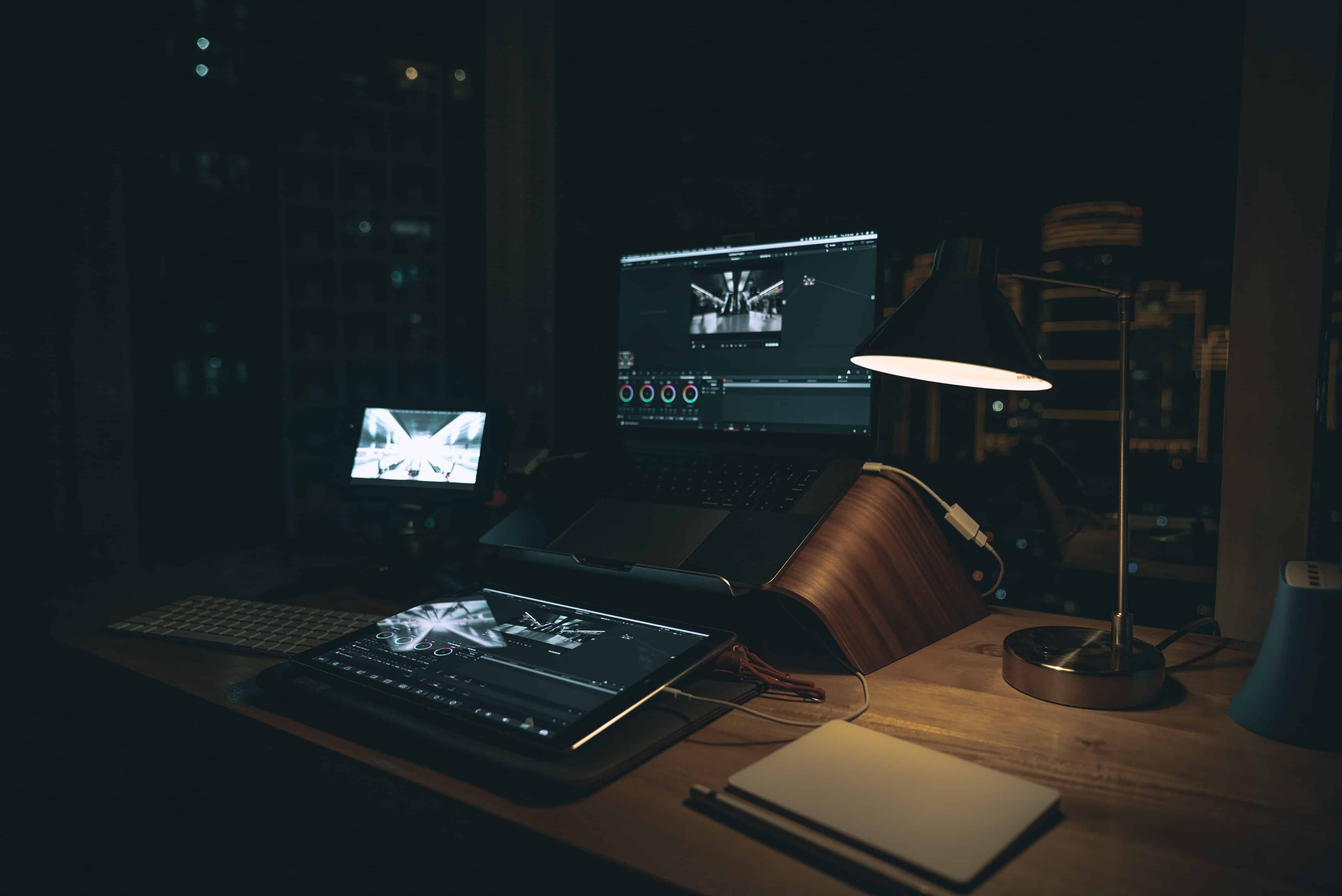While businesses across nearly every industry use transcription services regularly, according to estimates, 30% of all business transcription occurs in the legal sector. The legal industry relies heavily on various internal and external communications. That information is only useful when a professional converts it to a usable, reliable format.
Legal transcriptionists must develop skills and undergo training in industry-specific best practices and procedures to complete projects accurately and efficiently. Let’s discuss ways legal professionals benefit from transcriptionists’ services and explore some of the best practices for legal transcription.

Introduction to legal transcription
Transcription refers to the process of converting audio to text. In the legal sector, much of the transcription work is performed by a court reporter. Court reporters are specially trained and certified professionals who use stenography machines, steno masks or digital tools to capture depositions and legal proceedings in a live setting. However, legal transcriptionists might carry out some of this work and often perform other tasks for those in the industry. For instance, many legal professionals regularly make voice notes on the phone or Dictaphone and convert these recordings to text. Also, many attorneys need transcripts of digital evidence to build their cases. By transcribing these recordings, professionals can better review and analyze legal matters.
Legal transcriptionists may create records of meetings, depositions, courtroom testimony, phone call recordings, dashcam videos and more. All of these play a role in the legal process.

Skills and qualifications of a legal transcriptionist
Legal transcriptionists undergo extensive, industry-specific training to effectively support lawyers, paralegals and other legal professionals. Legal transcriptionists must be versatile enough to handle evidence on a wide range of subjects and extremely familiar with legal terminology and standard legal procedures. They must also demonstrate keen attention to detail to produce highly accurate final transcripts.
While accuracy is vital for legal transcription, it’s about more than just typing. There are often strict formatting requirements that transcriptionists must comply with for their clients.
Tools and technology legal transcriptionists use
Legal transcriptionists can use several tools and resources to help them transcribe legal proceedings more accurately and effectively. Some of these tools include:
Transcription equipment
Many legal transcriptionists use specific kinds of equipment to help them boost efficiency. For example, many professionals use ergonomic keyboards, which reduce strain on the wrists, arms and shoulders. Additionally, many legal transcriptionists use foot pedals during their transcription process to help them start and stop an audio recording without needing to take their hands off the keyboard.
In the case of court reporting, many use a stenography machine to quickly capture every word. The machine uses a form of phenetic shorthand that stenographers train to use so that they can type extremely quickly. Today, other court reporters use digital tools to complete the process.
Text Editing software
Legal transcriptionists must have access to text editing and formatting software. Whether the transcriptionist is working with digital evidence or something more formal, editing is a necessary part of the process. It’s rare for a first draft to be free of any errors.
Cloud storage capabilities
Due to the high volume of audio and video recordings processed regularly, a legal transcriptionist needs access to some form of cloud storage. In the case of legal transcription, the storage location must be extremely secure.
Speech-to-text software
Legal transcriptionists may use automatic speech recognition software thanks to major breakthroughs in artificial intelligence. Although speech-to-text technology offers enhanced speed and efficiency, professional transcribers must review and edit any transcript produced by AI. Speech-to-text programs often struggle to accurately capture low-quality recordings, accented speech, niche terminology, exchanges with multiple speakers and other problematic audio.

Process of legal transcription
The legal transcription process usually begins with a transcriber receiving an audio or video recording for transcription. Sometimes, a transcriber may be physically present or able to tune in virtually for a live proceeding to produce a transcript in real-time. The transcriber then listens to the audio files (often repeatedly) and types everything they hear into their text editing software.
From there, a transcriber carefully reviews and edits the transcript for accuracy. Manually transcribing legal information can be tedious, and it is reasonable to expect that a transcriptionist will make some errors during the process. Investing in additional rounds of reviewing and editing can help a transcriber deliver a more accurate final product. A legal transcriptionist is also responsible for formatting their transcript according to the specifications of a given project or client.
This process is often time-consuming and labor-intensive, which is why many legal professionals choose to partner with professional transcription services like Verbit. Verbit uses a combination of artificial intelligence and human transcription to deliver highly accurate transcripts with speedy turnaround times. Verbit also makes the service scalable and cost-effective by using a dual approach.

Challenges and best practices in legal transcription
The legal transcription process poses various challenges to even the most skilled professionals. For example, with more meetings and even legal proceedings taking place virtually, legal transcriptionists must contend with poor audio quality and lagging internet connectivity.
Additionally, legal transcribers often deal with sensitive or confidential information. Confidentiality is key, so professional transcribers must employ transcription software solutions that offer high levels of data security through advanced encryption and authentication practices.
Legal transcribers may also need to adhere to strict and often tight deadlines. In these situations, transcribers can use technology and other resources to boost their efficiency.
Career opportunities for legal transcriptionists
Legal transcriptionists can put their skills into action in several different ways. Some transcribers prefer to work independently and may freelance for law firms, court reporting agencies and other legal entities. Other transcriptionists may seek employment as an in-house transcriber for a local firm, agency or courthouse.
Alternatively, a legal transcriptionist may wish to work for a professional transcription service like Verbit. Many of these professional services provide training, technology solutions, and advancement opportunities. Down the line, legal transcriptionists may take advantage of professional development opportunities to specialize in specific segments of the legal industry.

Working with a legal transcription partner
Working with a professionally-trained legal transcriptionist is a great way for legal professionals to streamline their record-keeping process. Legal transcription can play a significant role in helping law firms and agencies boost efficiency.
Partnering with a transcription service like Verbit can help legal professionals maximize the value of their transcription efforts for years to come. Verbit’s transcription solutions are easy to implement and scale. To learn more about the importance of accurate legal transcription, reach out today to speak with a member of the Verbit team.




